By Jillian Johnson
It took all of the courage I had to put aside the debilitating amount of guilt I carried for five long years to tell Landon’s story—his birth, the first days of his life, and how he died. In fact, I still don’t know where I found that courage, but I am convinced Landon gave me the strength. I wasn’t prepared for the intense scrutiny my story received. I was utterly shocked because people came out of nowhere to discredit my story with a vengeance, but I quickly learned how to be gracious in such a vulnerable time.
After all, nothing anyone could say to me could hurt me more than the death of my newborn baby.
I can remember a very specific time, when I was sitting in the waiting room of the hospital and Landon was on life support. My dad was there with me and we were talking about Landon’s prognosis and I won’t ever forget him telling me what a special little boy he was and that he would do great things. I couldn’t quite wrap my head around what his words meant because Landon was most likely going to pass away, and my dad was talking about how he’s going to do great things. I never dreamed that his death would change the lives of so many people across the globe.
I was taken aback by the countless number of people reaching out to me personally and sending compassionate, supportive messages on Landon’s Facebook page. I spoke with so many people, it became a full-time job. But it was a job I was proud to have. I was shocked and appalled to learn about the number of mothers who experienced near-death with their babies from dehydration while breastfeeding, but because they were able to get help and supplement sooner, their babies survived. Some of the babies that suffered now have brain damage and disabilities. I also received messages from medical professionals who thanked me for speaking up, for educating and sharing Landon’s story too. They told me they feared losing their jobs if they spoke out about what they are seeing in hospitals. Some of the nurses told me they left the maternal health field because they could not tolerate seeing babies crying out to be fed while being denied supplementation. They told me they were given scripted responses to memorize to deny supplementation when a mother would ask for it. This is one example of the text.
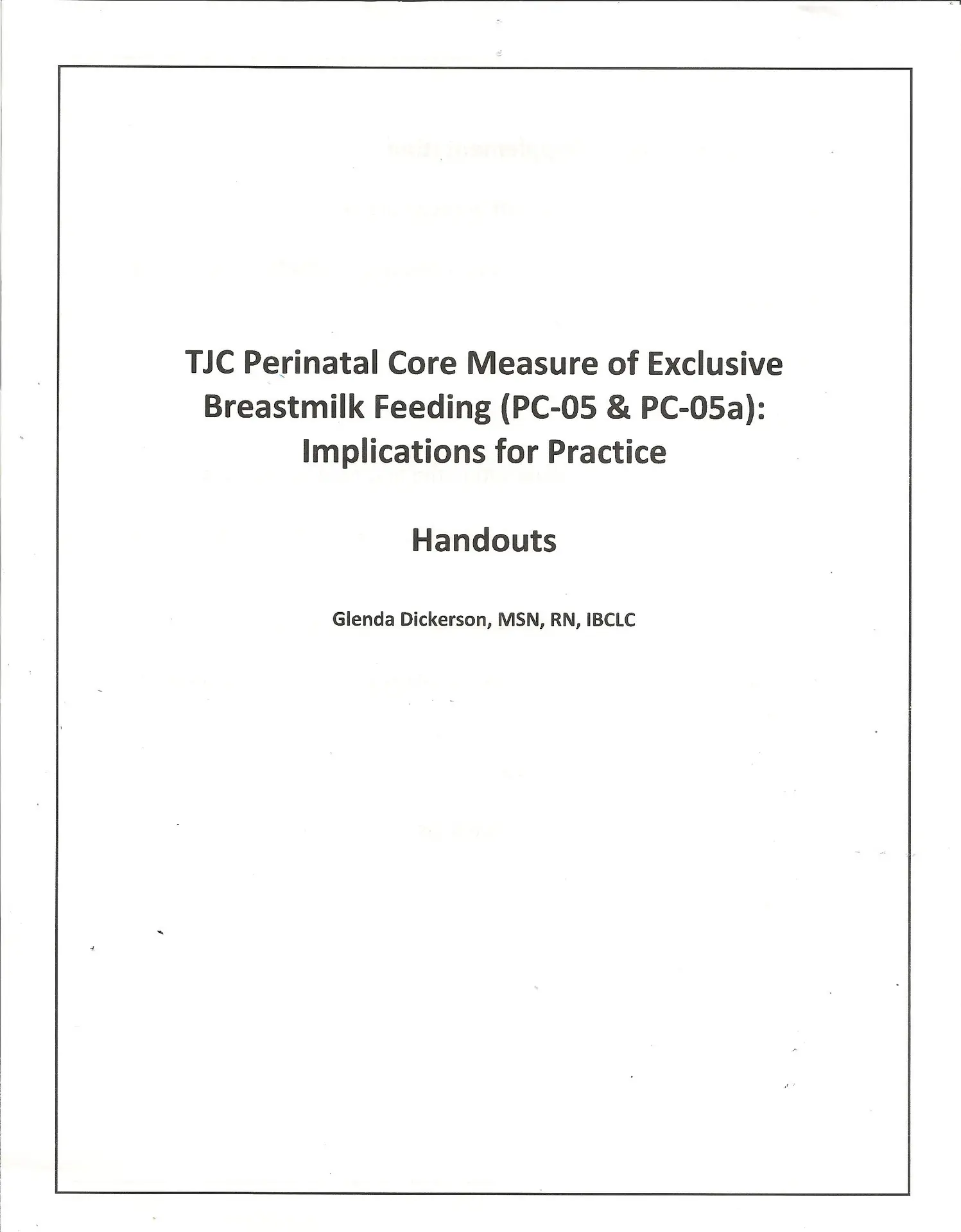
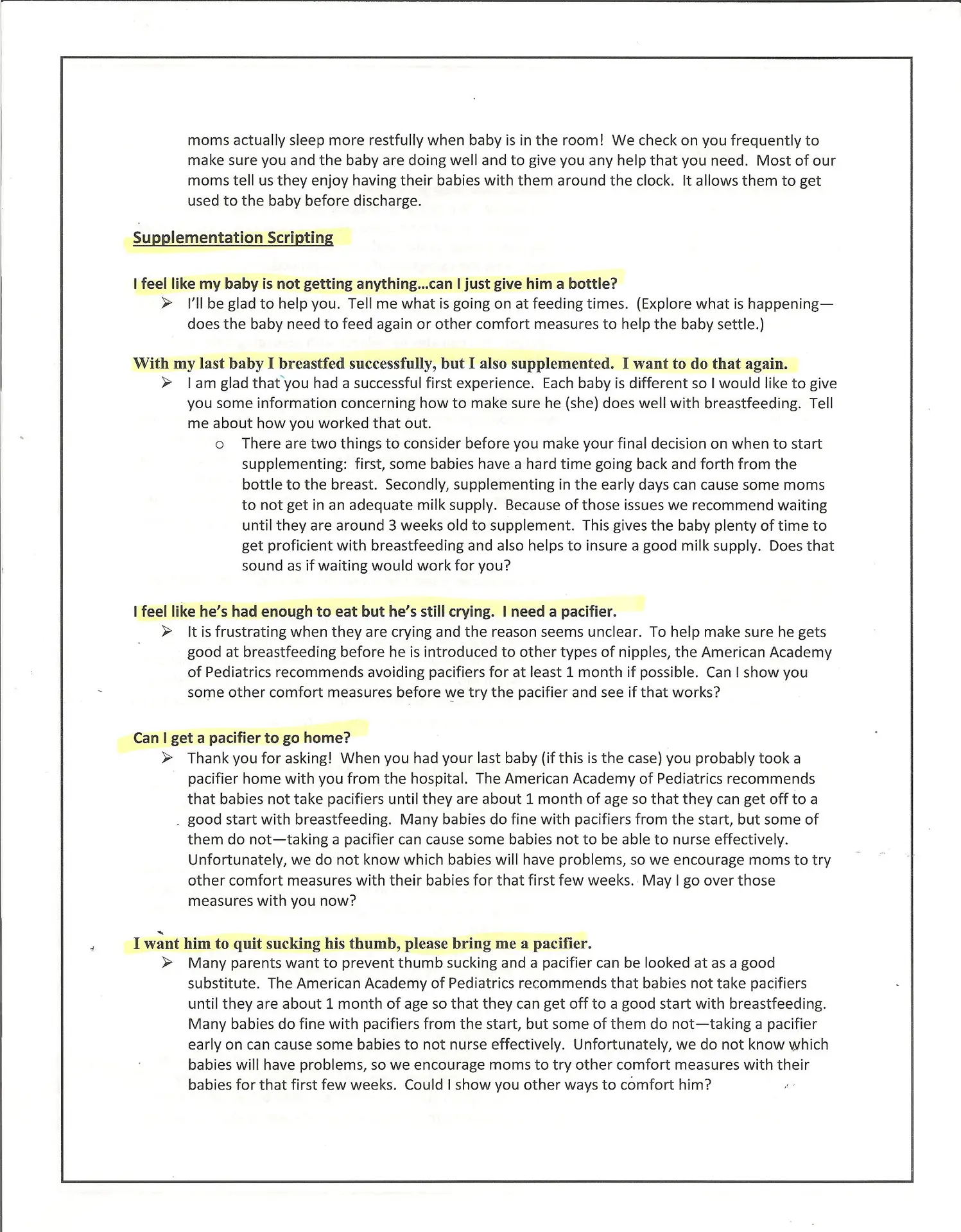
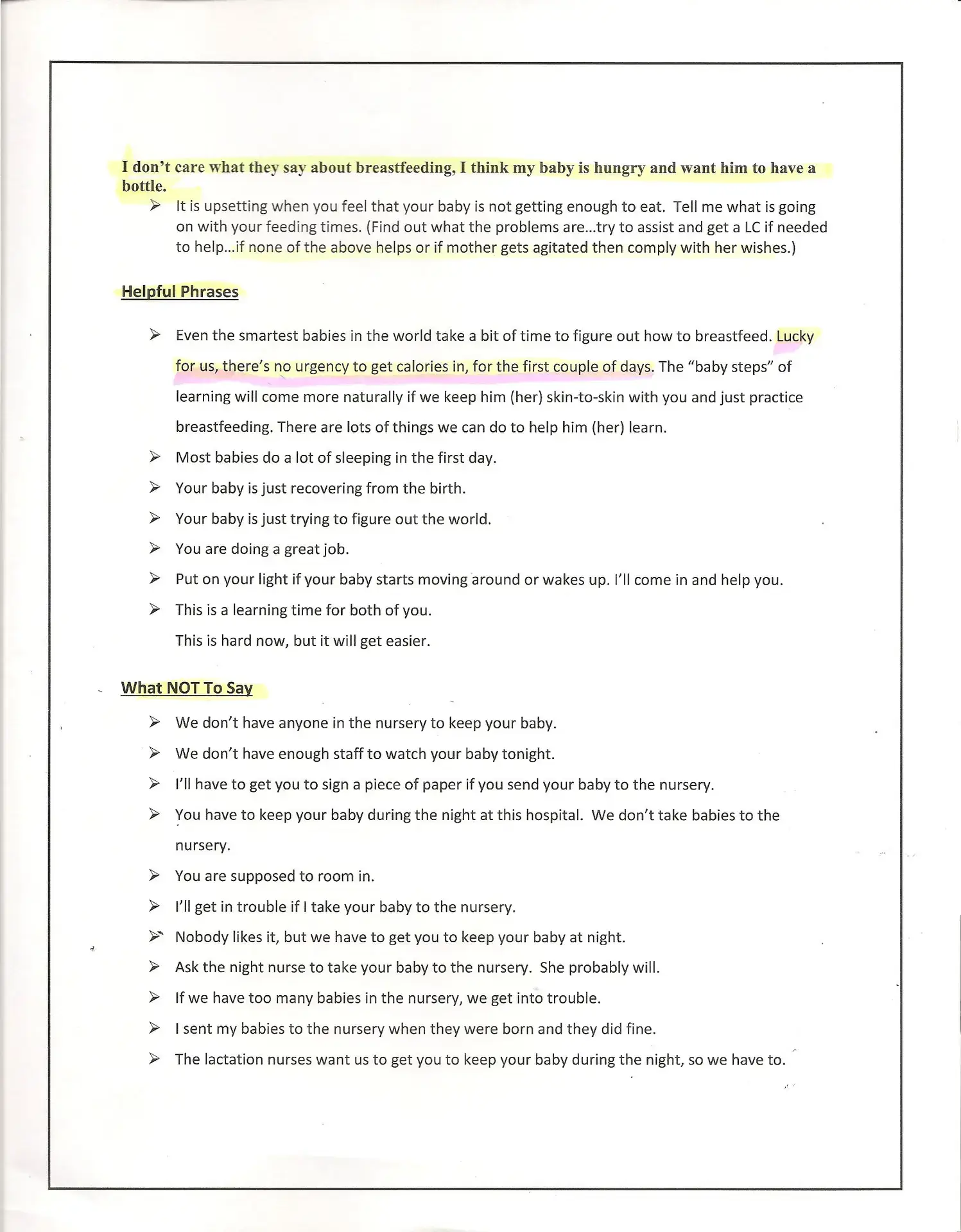
I learned there were other infant deaths from unintended starvations too, but parents could not share the details because of their medical malpractice settlement restrictions.
Of course, there were despicable and hateful words said to me by breastfeeding zealots. Their comments revealed to me how desperate they are to protect exclusive breastfeeding and depict it as perfect, when in fact it harms some babies when there isn’t enough breast milk.
It was an adjustment to talk about my story as I never wanted to be in the limelight, but each time I spoke, I felt empowered and I received compassionate support from people I didn’t even know! As I prepared for my first interview with People magazine, my nerves were coming apart. I could barely hold myself together as my husband stood in the kitchen listening to me recount the experience of the night we found Landon not breathing. I just kept reminding myself in my head that the world needs to hear his story and parents need to know how to protect their newborns from accidental starvation while exclusively breastfeeding. I can’t thank all of the staff at People magazine enough for their kindness. They allowed me to be open and speak freely about Landon.
The interview requests with people from all over the world continued. I was surprised when I heard from the producer of The Doctor’s Show. I was beyond nervous because I had no idea what I would be going into or up against. Thank goodness I had Dr. Christie with me. Having her beside me giving her her own personal story reminded me of why I had to just go out there and say what needed to be said. It was powerful and the emotions that came from it were indescribable. I have the utmost respect for Dr. Travis Stork and Dr. Nita Landry because they wanted to help us share our experiences to help educate others. I know Dr. Landry must’ve been able to tell how nervous I was. As the segment taping started, she reached over and grabbed my hand and told me she believes in me and what I’m doing. She told me she respected me and that I was going to do great. I won’t ever forget the photo that was taken after the taping as well. I haven’t been able to quite place what his emotion was, but Dr. Stork’s facial expression was one of shock. I don’t know if he was simply feeling sad after listening to us or if he was in disbelief about the practices that are causing harm to babies. But I appreciated the kind words exchanged as I left the stage.
I attended a large Neonatal Symposium where Dr. Christie presented Landon’s story which included all of the clinical information that I didn’t know about. Wow, talk about heavy emotions. I had to leave the room for some time because I couldn’t listen to some of the discussions and comments being made. At one point the entire room went silent when Dr. Christie presented a video of a baby who was in distress from inadequate breast milk intake in the hospital that was aired on TLC’s “Rattled” television episode.
One of the IBCLCs asked Dr. Christie if she knew the risks of using formula, yet the IBCLC didn’t have the basic understanding of knowing the deadly consequences of not supplementing a starving baby.
After Dr. Christie’s presentation, many physicians and nurses came up to her to thank her for answering the questions they had and for providing the most current research about exclusive breastfeeding complications.
As the year continued I became part of The Fed Is Best Advocacy Group, a large group of health professionals and parents who have infant feeding stories similar to mine who are working on multiple advocacy and outreach projects. One of them was meeting with The World Health Organization to discuss our concerns about the Ten Steps and accidental starvation.
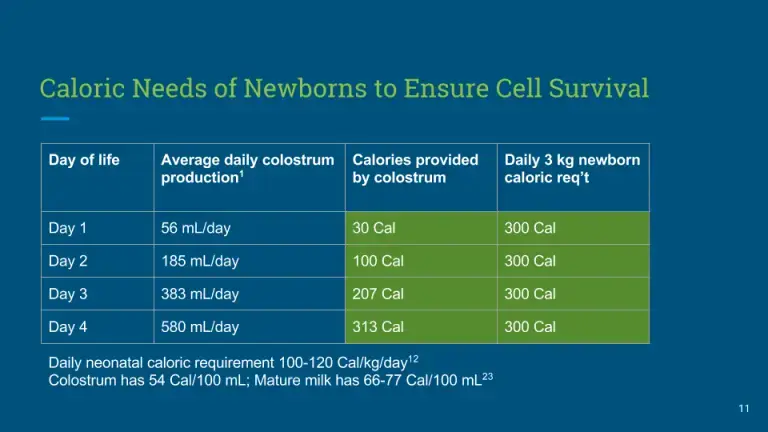
I continued to receive messages from people all over the world who were very kind and thoughtful, offering me support, telling me their stories and asking me many questions. This is an example of just one letter I received that was very moving to me:
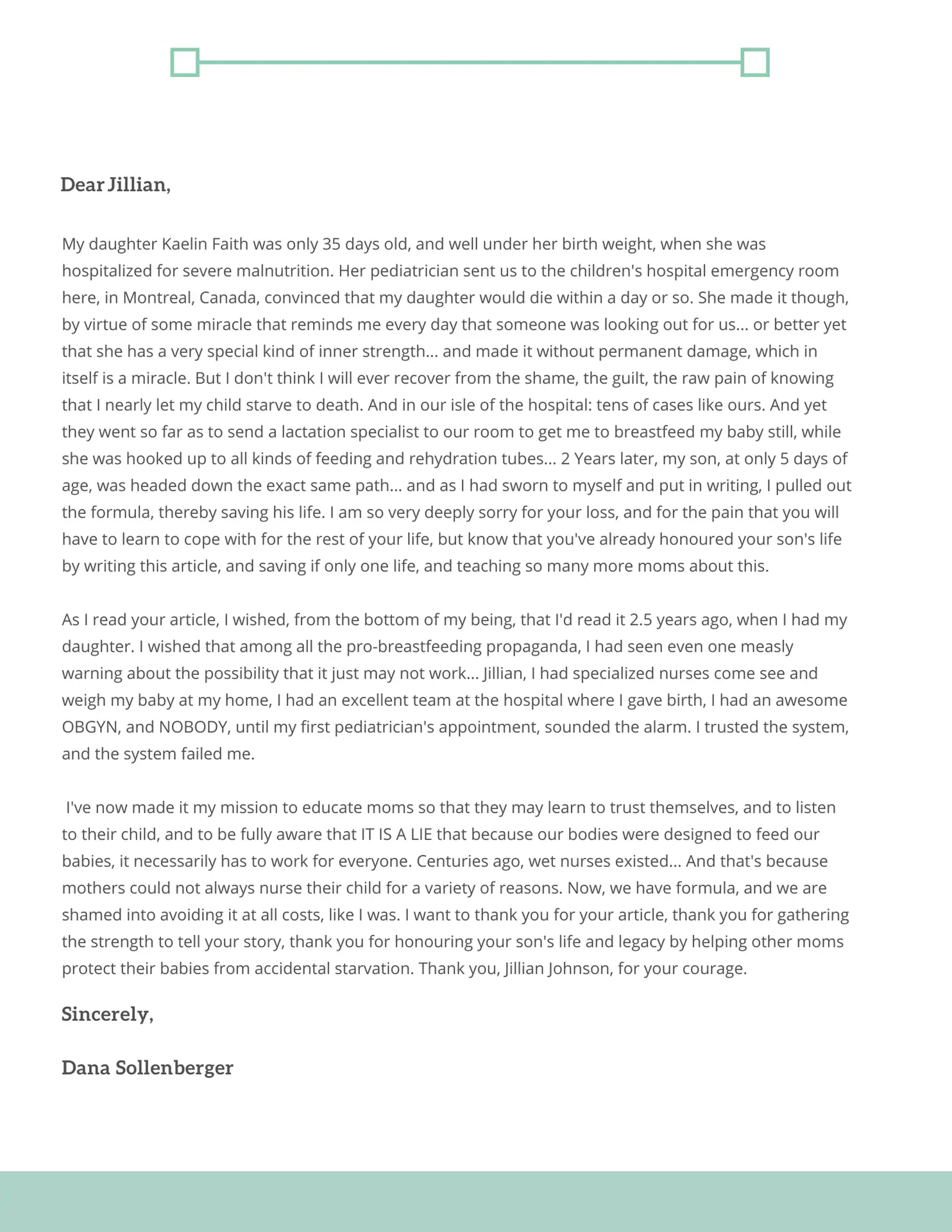
I think it’s important that I provide additional information to clarify Landon’s story, to debunk some of the mistruths that were written, and to answer some of the common questions, so that other parents are informed about the risks of exclusive breastfeeding.
- The first mistruth is Landon died from suffocation.
The truth is I was reading a breastfeeding book that my hospital recommended to us in our breastfeeding class. I was searching for answers about why my baby was “cluster feeding” all of the time. That book told me I would make all of the milk my baby needed and it reassured me that I was doing everything right. That book told me to trust my body, keep breastfeeding my baby as much as he wanted and my milk would come in. I believed that book. While reading, I noticed he was still. I picked him up and he was limp. My husband was training to be an EMT and began doing CPR on him immediately until the paramedics arrived and took over. At the hospital, Landon was diagnosed with severe dehydration, and they could not get an IV line in and had to use intraosseous access which is a cannula spike that went directly into his bone marrow as the last resort.
- The second mistruth is that it is rare for exclusively breastfed babies to suffer from dehydration.
The truth is dehydration is common while attempting to exclusively breastfeed. This most commonly occurs because a mother is not producing enough colostrum or breast milk for her baby.
- The third mistruth is that Landon had a metabolic disorder.
The truth is his newborn screening for inherited metabolic disorders was normal and is confirmed in his medical chart. He had every test imaginable in the NICU and everyone was normal, except for his brain injury from severe dehydration. He developed pneumonia after his body began to shut down while on the ventilator. His NICU admission blood work and chest x-ray confirm this.
- The fourth mistruth is that Landon had something wrong with him in the hospital.
The truth is I didn’t have an emergency c-section. I learned this when reviewing my medical chart. I was in labor at home and was progressing beautifully. I arrived at the hospital and was dilated at 5 cm. I asked for an epidural and then my water broke. Landon’s heart monitoring showed some distress when my water broke so my obstetrician said his cord could be in trouble and together, we decided not to take any chances and began to prepare for my surgery. His heart rate stabilized with positioning his head off the cord and positioning my body. Forty-two minutes later, Landon was born. He came out with an immediate cry and had Apgars of 8 and 9. According to his medical records, he did receive a 20 ml IV fluid bolus to resolve his expiratory grunting, which is a common treatment used in newborns who are stabilizing to extrauterine life after a c-section birth because of a partial cord prolapse.
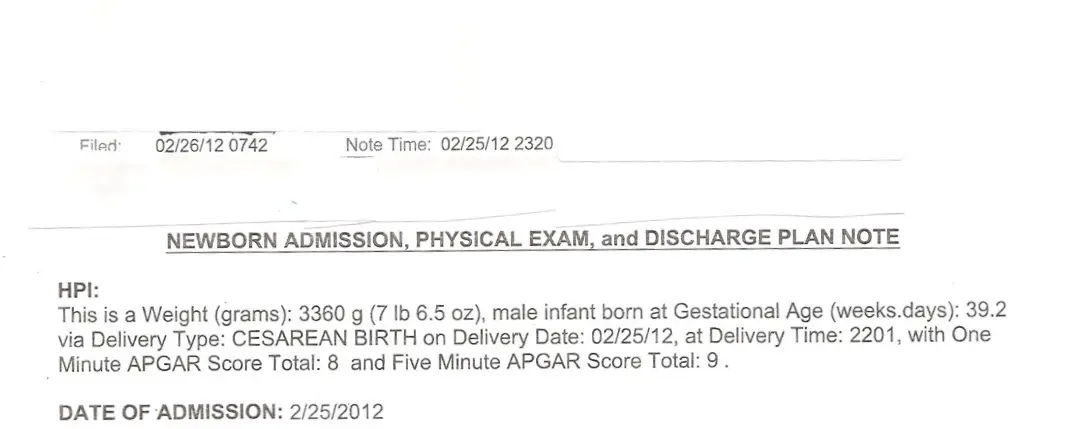
Landon was required to have 2 hours of observation in the special care nursery per the hospital’s protocol. He was brought out to us and was cleared to be in my room at all times. He had normal vital signs and exams, at every shift, as documented in his medical chart. But what wasn’t normal was his constant breastfeeding. According to the experts at The Fed is Best Foundation, if he were sick or unstable, it would be impossible to have any energy or stamina to constantly breastfeed.
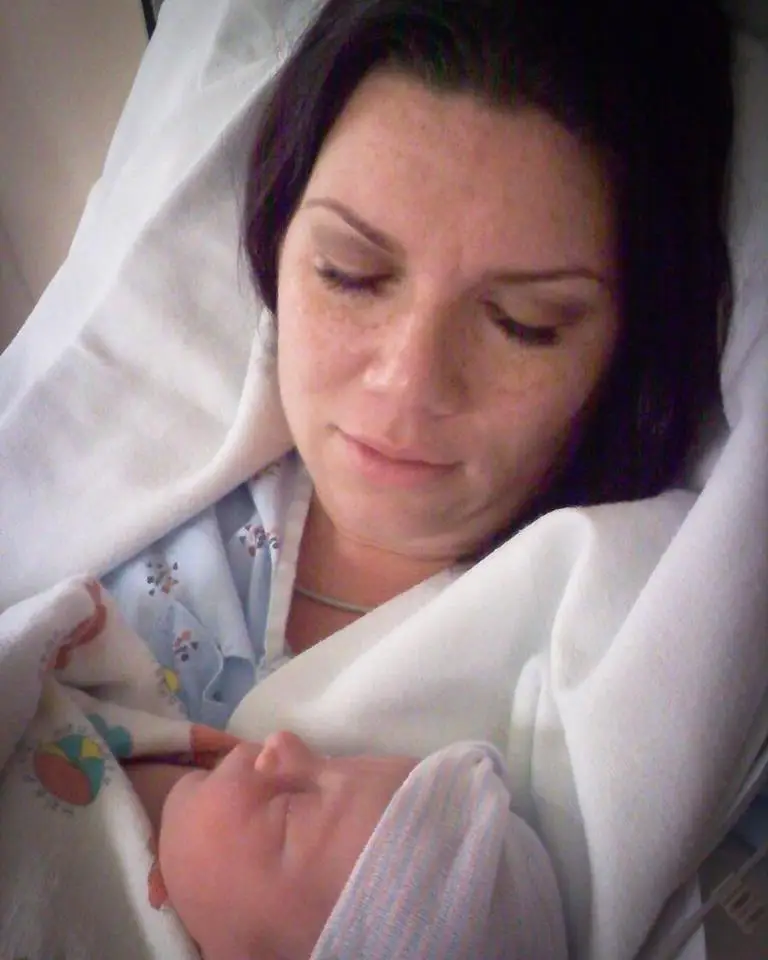
Landon shortly after birth. He was just perfect in every way.
Many people asked why I didn’t feed my baby formula if I thought he was hungry when we got home. The truth is I didn’t have any formula and even if I did, I had no idea how to supplement or how to prepare it because I was never taught how to in my breastfeeding education class. My hospital told me a mother shouldn’t have formula at home and I believed them. I trusted them and my goal was always to exclusively breastfeed my baby.
We have been through some very dark times. But it’s also through these dark times that I am reminded that I was the one chosen to be the mother of such an important little guy. Somehow, I was the one that would have to be strong enough to go through his death, knowing that it didn’t have to be this way. He didn’t have to die. Yet the Baby-Friendly exclusive breastfeeding education and policies, which we learned from the WHO has never been tested or monitored for safety, continue to be promoted for babies all across the globe.
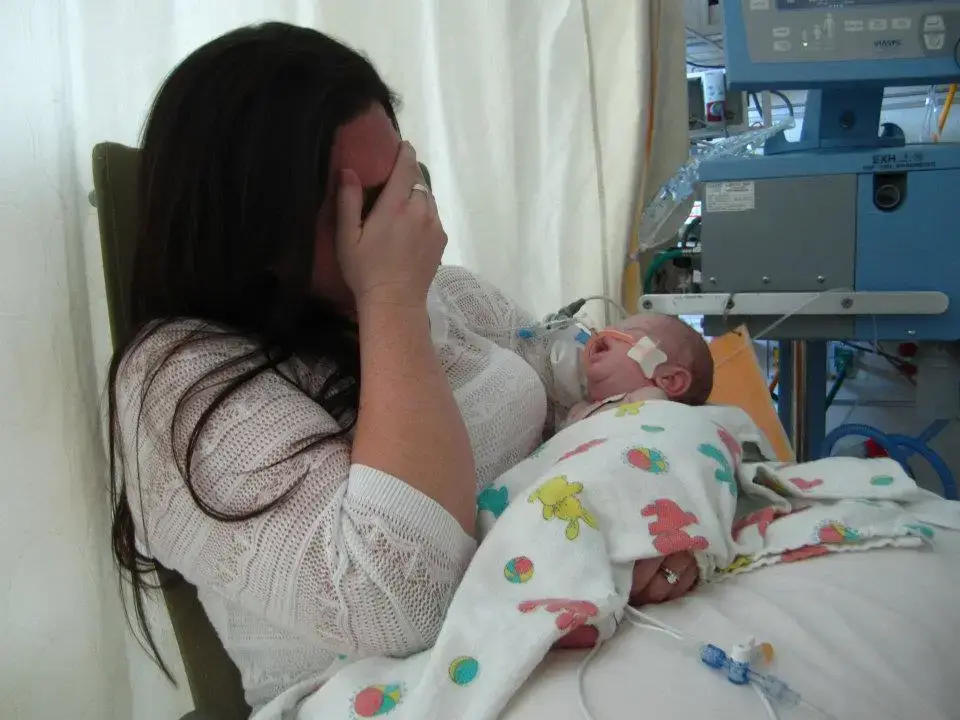
Landon on life support after going into cardiac arrest from severe dehydration from insufficient exclusive breastfeeding.
My message to parents during World Breastfeeding Week is this.
It is very important for me to say that Landon didn’t die from exclusively breastfeeding. He died from not having enough milk. No doctor, nurse, or IBCLC’s from my Baby-Friendly hospital recognized he was starving because they were all taught the same universal breastfeeding education from the Baby-Friendly Hospital Initiative, which is deeply flawed. When I had my second child, I nursed, supplemented and pumped at every feeding. The most milk I ever got was 1.5 ounces every 24 hours, and my daughter never transferred any measurable breast milk when doing weighted feeds. It took 6 days for my milk to even come in. It wasn’t until I had my second baby that anyone mentioned that I had insufficient glandular tissue, in addition to my PCOS diagnosis.
Modern medicine has been duped by the WHO BFHI protocol and our society is paying the price. My baby paid the ultimate price.
I ask every licensed medical professional to review the WHO Ten Steps breastfeeding policy and ask for the safety data and then make changes to improve this policy so that babies and mothers are protected and can go on to safely breastfeed their babies.
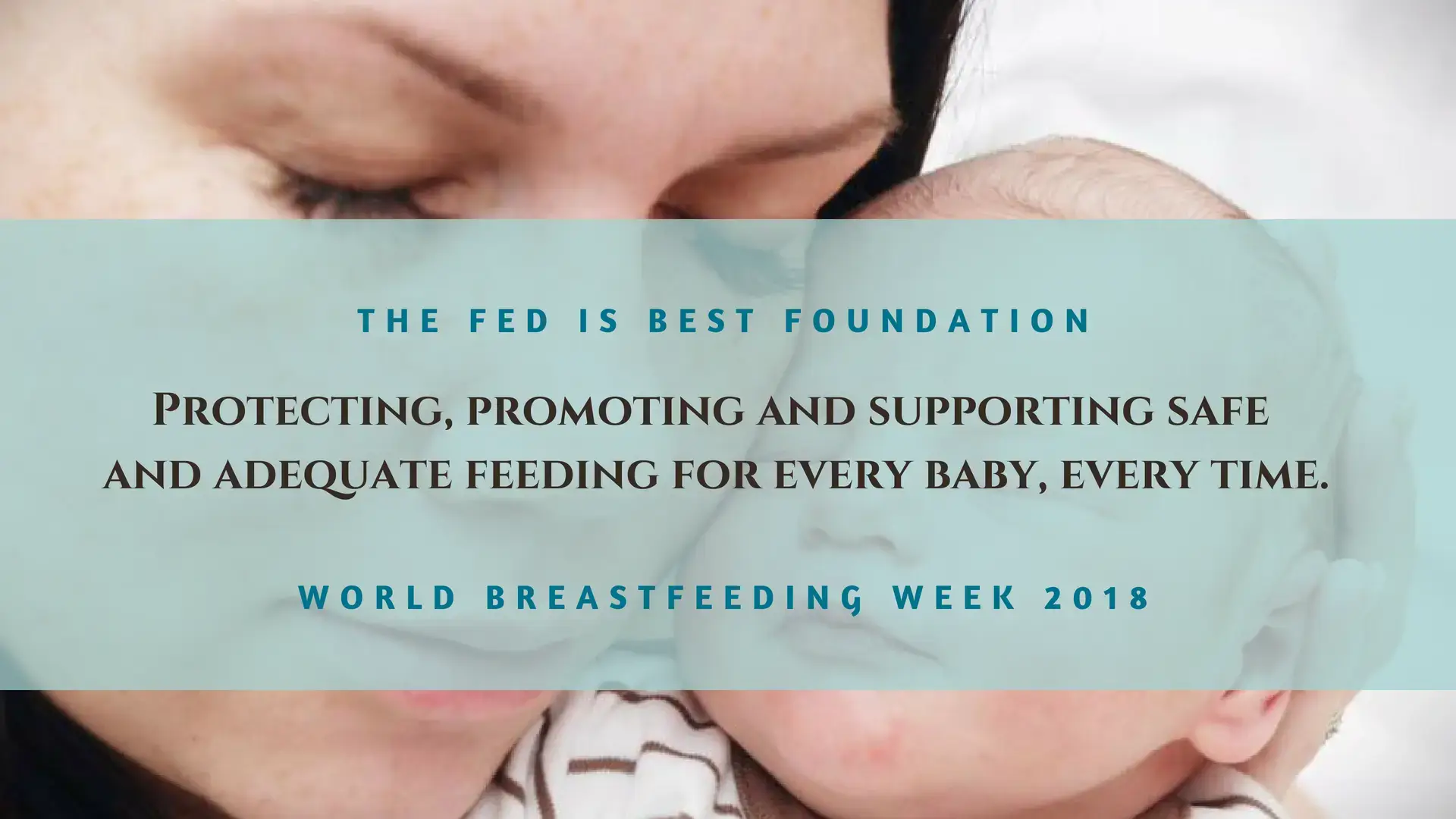
Hospital Drops Baby Friendly Program After Doctors Baby Was Harmed
NICU Nurse Discloses Newborn Admission Rates From Breastfeeding Complications in BFHI Unit
If I Had Given Him Just One Bottle, He Would Still Be Alive.
https://fedisbest.org/2018/11/neonatal-nurse-practitioner-speaks-out-about-the-dangerous-and-deadly-practices-of-the-bfhi/
Nurses Are Speaking Out About The Dangers Of The Baby-Friendly Health Initiative
“Is Baby-Friendly Safe?”: BFHI Safety Issues Discussed at National Neonatology Conference
https://fedisbest.org/information-for-hospitals-ensuring-safety-for-breastfed-newborns/pediatricians-views-on-the-baby-friendly-hospital-initiative/
HOW YOU CAN SUPPORT FED IS BEST
There are many ways you can support the mission of the Fed is Best Foundation. Please consider contributing in the following ways:
- Join us in any of the Fed is Best volunteer and advocacy, groups. We currently have– Health Care Professionals group, Advocacy Group, Research Group, Volunteer Group, Editing Group, Social Media Group, Legal Group, Marketing Group, Maternal Mental Health Advocacy Group, Private Infant Feeding Support Group, Global Advocacy Group, and Fundraising Group. Please send an email to Jody@fedisbest.org– if you are interested in joining any of our volunteer groups.
- If you need support, we have a private support group– Join us here.
- If you or your baby were harmed from complications of insufficient breastfeeding please send a message to contact@fedisbest.org
- Make a donation to the Fed is Best Foundation. We are using funds from donations to cover the cost of our website, our social media ads, our printing and mailing costs to reach health providers and hospitals. We do not accept donations from breast- or formula-feeding companies and 100% of your donations go toward these operational costs. All the work of the Foundation is achieved via the pro bono and volunteer work of its supporters.
- Sign our petition! Help us reach our policymakers, and drive change at a global level. Help us stand up for the lives of millions of infants who deserve a fighting chance. Sign the Fed is Best Petition at Change.org today, and share it with others.
- Share the stories and the message of the Fed is Best Foundation through word-of-mouth, by posting on your social media page and by sending our FREE infant feeding educational resources to expectant moms that you know. Share the Fed is Best campaign letter with everyone you know.
- Write a letter to your health providers and hospitals about the Fed is Best Foundation. Write to them about feeding complications your child may have experienced.
- Print out our letter to obstetric providers and mail them to your local obstetricians, midwives, family practitioners who provide obstetric care and hospitals.
- Write your local elected officials about what is happening to newborn babies in hospitals and ask for legal protection of newborn babies from underfeeding and of mother’s rights to honest informed consent on the risks of insufficient feeding of breastfed babies.
- Send us your stories. Share with us your successes, your struggles and everything in between. Every story saves another child from experiencing the same and teaches another mom how to safely feed her baby. Every voice contributes to change.
- Send us messages of support. We work every single day to make infant feeding safe and supportive of every mother and child. Your messages of support keep us all going.
- Shop at Amazon Smile and Amazon donates to Fed Is Best Foundation.
- If you need support, we have a private support group– Join us here.
Or simply send us a message to find out how you can help make a difference with new ideas!
For any urgent messages or questions about infant feeding, please do not leave a message on this page as it will not get to us immediately. Instead, please email christie@fedisbest.org.
Thank you and we look forward to hearing from you!

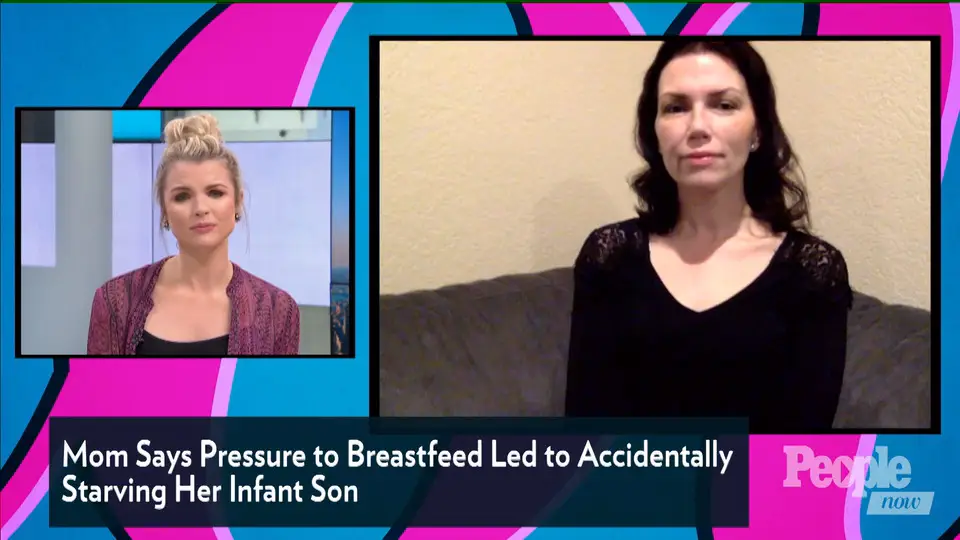

Hello and thank you for courageously sharing your story and your grief. I am deeply sorry about the loss of your son. Your story is personal because I was a starved baby in my first weeks of life in 1967 when my mom, doing the very best she thought she could do, exclusively breast fed me. I cried constantly and I realize as an adult that this was an extremely traumatic experience that I’m just now healing. At birth I weighed 6.5 pounds and went to 5.5 before they figured out that i needed formula. I still feel those screams of starvation deep within. Reading your story has helped me to forgive my mom and realize how frustrating and scary it must have been for her. She brought me to the grocery store and weighed me on a produce scale; at that point she realized how much weight I had lost and knew something was terribly wrong. She brought me to the hospital and started supplementing with formula. When my younger sister was born, she supplemented with formula from day one and everything was fine.
Thank you for sharing your story so that other parents can know about this possibility. I love breastfeeding and breast fed my own son, but there is a need for a balanced approach. Like you, my mom was trying to be the best mom she could possibly be and give me, her beloved baby the best possible nourishment. It is not her fault that I was starving. I forgive her.
I wish you much love. Your courage is saving the lives of other babies and the heartaches of other parents.